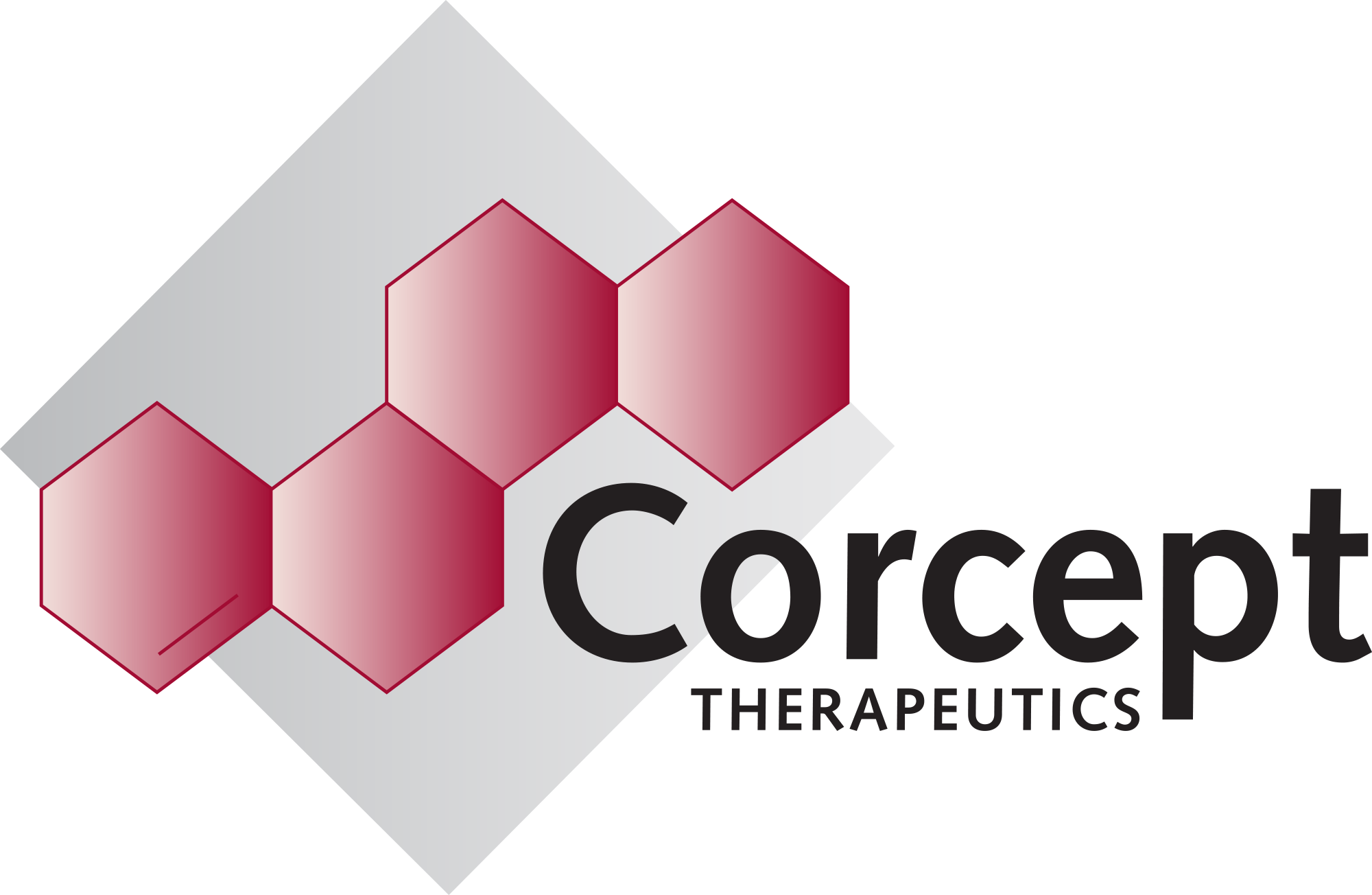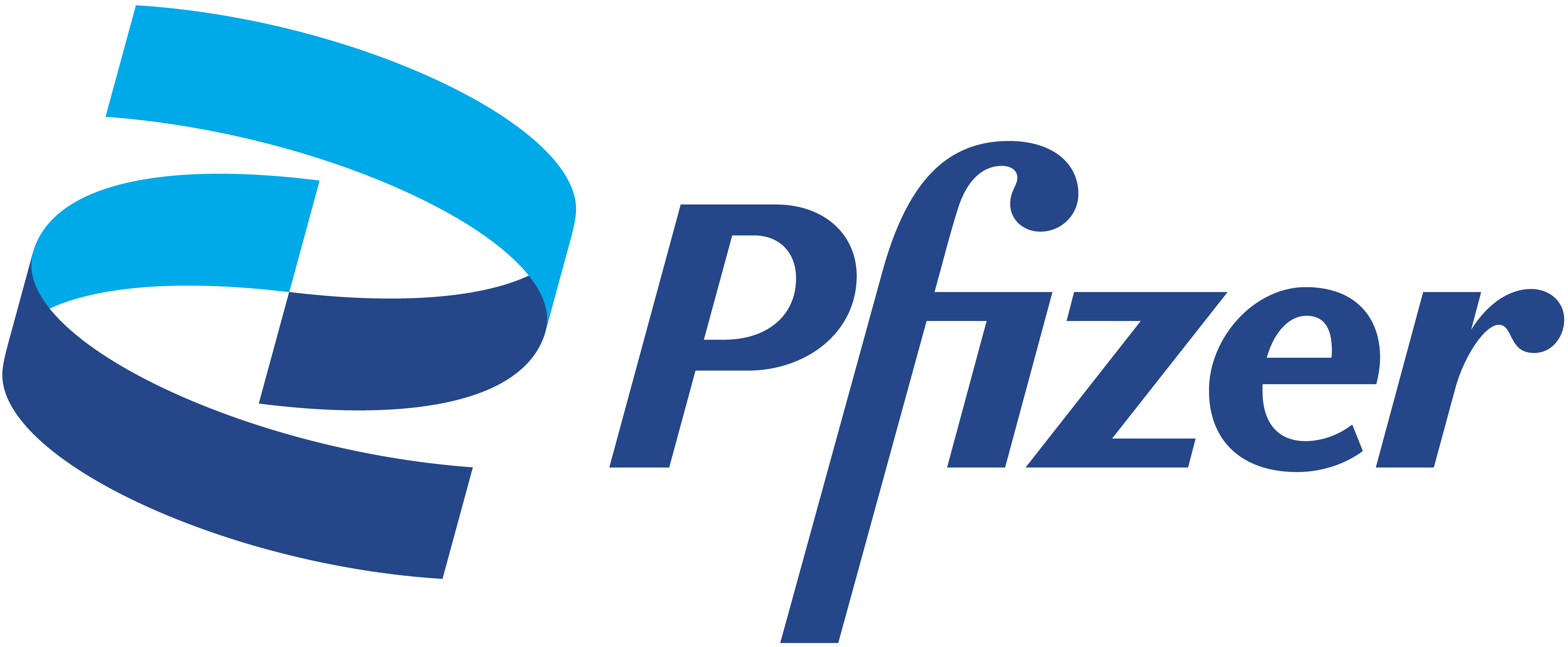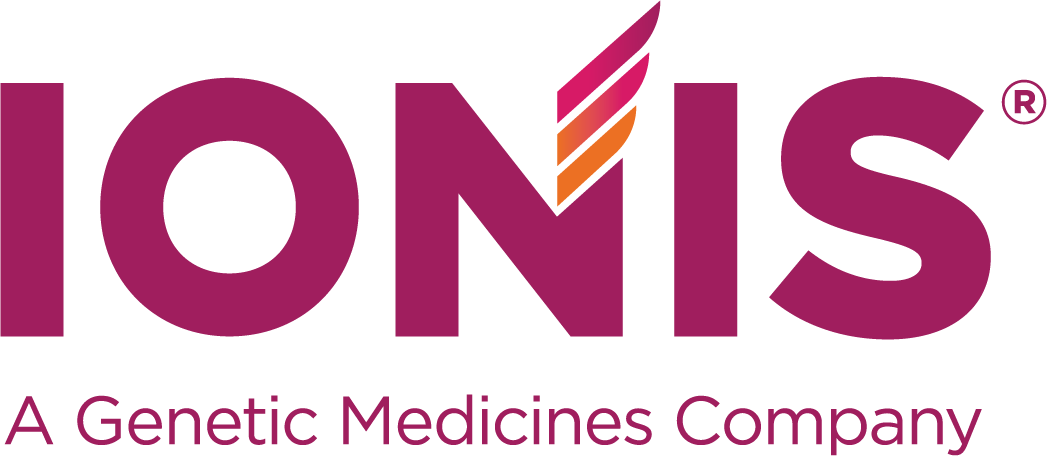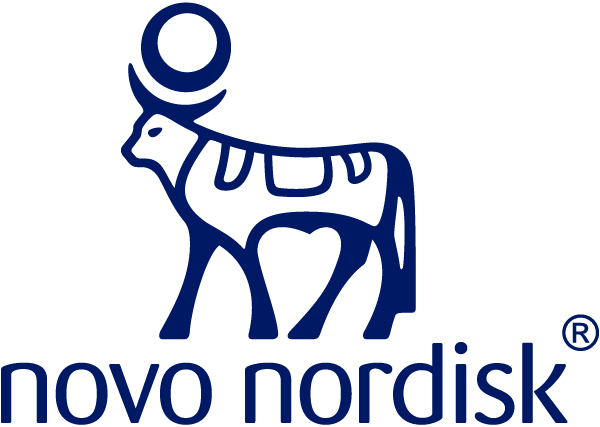Thursday, June 15
12:30 PM - 1:30 PM
Theater #1

Mounjaro™ (tirzepatide) Product Theater
Lilly USA
Steven V. Edelman, MD
Description: Join a discussion with one of your peers on the efficacy, safety, dosing, and administration of once-weekly Mounjaro, and learn about how to get your adult patients with type 2 diabetes started on this treatment. Attendees will have the opportunity to pose questions to the faculty speaker about the data presented. Refreshments will be provided.
Please see the Important Safety Information, including Boxed Warning about possible thyroid tumors, including thyroid cancer, the Full Prescribing Information, and Medication Guide provided at the Product Theater.
This program is sponsored by, and the speaker is presenting on behalf of, Lilly USA, LLC. It is being presented consistent with FDA guidelines and is not approved for continuing education credit.
Thursday, June 15
12:30 PM - 1:30 PM
Theater #2

Evolving Perspectives in Hypercortisolism: A Panel Discussion
Corcept Therapeutics
Richard Auchus, MD, PhD, University of Michigan, Ann Arbor, MI
Irina Bancos, MD, Mayo Clinic, Rochester, MN
Lewis Blevins, MD, University of California San Francisco, San Francisco, CA
Description: Evolving perspective on patients at risk of hypercortisolism.
Thursday, June 15
12:30 PM - 1:30 PM
Theater #3

Treating Hypothyroidism: A Contemporary Clinical Perspective on DTE and Its Value for Patient Care
Acella Pharmaceuticals
David G. Robertson, MD, Partner, Atlanta Diabetes Associates, Endocrinologist, Piedmont Hospital, Atlanta, GA
Elizabeth A. McAninch, MD, Clinical Associate Professor, Medicine, Stanford University School of Medicine, Palo Alto, CA
Thanh D. Hoang, DO, FACP, Program Director, NCC Endocrinology Fellowship Program, Professor, Uniformed Services, University of the Health Sciences, Division Director, Endocrine Division, Uniformed Services University of the Health Sciences, Bethesda, MD
Description: An expert panel discussion on the evolving paradigm in hypothyroidism treatment, including the significance of patient-reported outcomes and the role of desiccated thyroid extract, featuring three leaders on the cutting edge of clinical research and practice.
Thursday, June 15
3:15 PM - 4:15 PM
Theater #1

The History, Diagnosis, and Identification of Patients with Cushing's Disease
Recordati Rare Diseases
Dr. Lewis Blevins, MD
Description: Examining the history and diagnosis of Cushing's disease and how we identify patients eligible for medical management through the use of real-world evidence.
Thursday, June 15
3:15 PM - 4:15 PM
Theater #3

Please Join Provention Bio for a Product Theater to Learn More About an Approved Therapy
Provention Bio
Serge Jabbour, MD, Professor of Medicine, Sidney Kimmel Medical College, Director, Endocrinology, Jefferson Health
Philadelphia, PA
Description: Learn more about the clinical data for TZIELD™ (teplizumab-mzwv) and more about the unmet need for an approved innovative treatment. (PM-TZI-280v1.0)
Friday, June 16
9:30 AM - 10:30 AM
Theater #1

Advancements in Long-Term Management of Cortisol and Cushing’s Syndrome
Xeris BioPharma
Elena Christofides, MD
Description: Join us to learn more about advancements in the long-term management of prolonged exposure to excess cortisol levels and review recently released long-term data associated with the latest treatment option for patients with Cushing’s syndrome. Cushing’s syndrome leads to increased risk of mortality and can have a significant impact on a patient’s quality of life. This program will review considerations about the treatment journey, the latest recommendations from clinical guidelines, and the importance of individualizing therapy.
Friday, June 16
9:30 AM - 10:30 AM
Theater #2

Why You Should Care: Challenges in the Management of Hypoparathyroidism
Ascendis Pharma
Dr. Tamara P. Vokes, MD
By the conclusion of this presentation, participants will be able to: Understand important pathophysiologic and clinical aspects of hypoparathyroidism; Diagnose, treat and become familiar with monitoring strategies; Recognize the impacts of PTH deficiency & long-term calcium therapy on multiple target organs; Recognize that patients experience physical and cognitive symptoms that impact their lives; and, Understand the unmet needs in management of hypoparathyroidism.
Friday, June 16
9:30 AM - 10:30 AM
Theater #3

Introduction to Rare Melanocortin-4 Receptor (MC4R) Pathway Diseases
Rhythm Pharmaceuticals
Gitanjali Srivastava, MD, FAAP, FACP, Medical Director of Clinical Obesity Medicine Vanderbilt Medical Weight Loss Center, Program Director, Obesity Medicine Fellowship, Vanderbilt University, Nashville, TN
Program Objectives:
Friday, June 16
12:00 PM - 1:00 PM
Theater #1

Understanding the Management of Pediatric Growth Hormone Deficiency (PGHD): Addressing Unmet Needs and Considerations for Clinical Decision-Making
Pfizer Inc.
Dr. Teresa Quattrin
Dr. Lawrence Silverman
Description: Children with PGHD are prone to a variety of physical and metabolic symptoms as well as the classic signs usually associated with the disease. This combination can have a profound physical and emotional impact on these young patients. Building on Pfizer’s 27 years of commitment to patients with growth hormone deficiency, this presentation will review the pathophysiology and treatment considerations for this population.
Friday, June 16
12:00 PM - 1:00 PM
Theater #2

The picture of CGM in Type 2 diabetes: Now and in the future.
Dexcom Inc.
Egils Bogdanovics, MD, Charlotte Hungerford Hospital, Torrington, CT
Sushma Reddy, MD, Carbon Health, Fort Gratiot, MI
Description: The role of CGM in the management of Type 1 diabetes is well established. The role of CGM in Type 2 diabetes is ever changing and the body of evidence is growing daily. In this presentation, you will increase your knowledge and confidence in using CGM to improve the glycemic management of your patients with T2 diabetes and learn how digital platforms can aid with glycemic outcomes. Dr. Bogdanovics will discuss the latest clinical research in T2D and CGM, the use of AID systems in T2D and present two case studies demonstrating the use of CGM in T2D. Dr. Reddy will discuss digital health apps that connect to Dexcom G7 and share how they help her patients in their diabetes management journey. She will discuss the use of CGM in the digital space and how connected systems help her manage her patients with both Type 1 and Type 2 diabetes. They will share their tips and tricks to quickly and easily interpret CGM data using the AGP report.
Friday, June 16
12:00 PM - 1:00 PM
Theater #3

Thyroid Eye Disease (TED): Early Diagnosis, Referral, and Treatment
Horizon Therapeutics
Todd Frieze, MD, Director of Thyroid Services, Department of Medicine, Division of Endocrinology, Metabolism and Nutrition, Duke University, Durham, NC
Description: Please join us as we discuss emerging data on the pathophysiology of Thyroid Eye Disease (TED), including the role of insulin-like growth factor-1 receptor (IGF-1R), and the treatment of TED. We will also explore how the heterogeneity of TED may lead to challenges in diagnosis, as well as the critical role of the endocrinologist in the multidisciplinary management of TED. This symposium is organized by Horizon Therapeutics. This presentation is intended for US-based healthcare professionals.
Friday, June 16
2:30 - 3:30 PM
Theater #1

Disguised: How the common phosphorus test leads to a commonly missed diagnosis in metabolic bone disease
Kyowa Kirin
Dr. Kathryn Dahir
It takes an average of 4-9 years to diagnose a patient with a rare disease. For many these patients, their journey to diagnosis often includes multiple referrals to different specialists and misdiagnoses. During this time, a patient’s symptoms, as well as the disease burden, may progress. Join Dr. Kathryn Dahir on Friday June 16th 2:30 – 3:30 PM as she presents the case studies of two patients who struggle with the symptoms of a disease commonly misdiagnosed. After this program participants will learn to identify the constellation of symptoms and red flags to enable an earlier diagnosis, and make earlier interventions.
Friday, June 16
2:30 - 3:30 PM
Theater #2
.png?h=61&w=210&hash=459870886AF55B71B8DF4AF5689919BF)
Clinical Updates of Hypophosphatasia
Alexion Pharmaceuticals
Eric T. Rush, MD, FAAP, CCD, Clinical Geneticist, Underdown/Yeomans Endowed Professor Medical Director, Children's Mercy Hospital, University of Kansas Health System, Kansas City, MO
Description: Diagnosing Hypophosphatasia (HPP): Explore the connection between low levels of alkaline phosphatase (ALP) and one or more clinical signs and symptoms of hypophosphatasia (HPP) | Understand the highly variable nature of HPP presentation and how it can affect the different systems of the body | Recognize the signs, symptoms, and burden of HPP, as well as the importance of a timely diagnosis.
Friday, June 16
2:30 - 3:30 PM
Theater #3

Recognizing and Diagnosing Familial Chylomicronemia Syndrome
Ionis Pharmaceuticals
Robert H. Eckel, MD, University of Colorado Anschutz Medical Center, Morrison, CO
Please join our expert faculty for a discussion on recognizing and diagnosing familial chylomicronemia syndrome (FCS). The faculty will review the clinical characteristics of FCS as well as the role of genetics in this condition. A real-world perspective will also be given to illustrate the challenges clinicians face in FCS, from recognition to understanding available guidance for diagnosis. A focus will be placed on the patient burden associated with FCS and the unmet need for therapies in this patient population. At the conclusion of the presentation, the expert faculty will be available for Q&A.
Saturday, June 17
9:45 AM - 10:45 AM
Theater #1

SKYTROFA® (lonapegsomatropin-tcgd): The First FDA-approved, Once-weekly Treatment for Pediatric Growth Hormone Deficiency
Ascendis Pharma
Dr. Joshua Yang, Chief of Pediatric Endocrinology at the Arnold Palmer Hospital Pediatric Endocrinology and Diabetes Center
Description: Please join Ascendis Pharma for a presentation by Dr. Joshua Yang, Chief of Pediatric Endocrinology at the Arnold Palmer Hospital Pediatric Endocrinology and Diabetes Center, on Saturday, June 17, from 9:45-10:45 am CT. Dr. Yang will be discussing SKYTROFA® (lonapegsomatropin-tcgd), the first FDA-approved, once-weekly growth hormone treatment for pediatric growth hormone deficiency. He will review the mechanism of action and pharmacodynamics of SKYTROFA, as well as the clinical efficacy and safety from data across two pivotal clinical trials. In addition, Dr. Yang will describe the features of the innovative SKYTROFA Auto-Injector, dosing and administration, and the patient support program. An opportunity for questions and answers will also be provided.
Saturday, June 17
9:45 AM - 10:45 AM
Theater #3

Realizing the possibilities: extending growth hormone treatment options
Novo Nordisk
Bradley S. Miller, MD, PhD, Professor of Pediatrics, Director, Division of Endocrinology, University of Minnesota Medical School, MHealth Fairview Masonic Children’s Hospital, Minneapolis, Minnesota
Philippe F. Backeljauw, MD, Professor of Clinical Pediatrics at the University of Cincinnati College of Medicine
Growth hormone deficiency is a rare disorder that develops as a result of insufficient secretion of growth hormone (GH). Effects of inadequate GH levels can be significant as GH is required for normal growth in children and for metabolism and body composition in children. This program will discuss the treatment landscape in patients with growth hormone deficiency. The clinical characteristics of a product used to treat patients with growth hormone deficiency will also be presented.
Saturday, June 17
1:00 PM - 2:00 PM
Theater #1

New Generation of TSH-R-AB Bioassays: Relevance & Performance
QuidelOrtho
Mark A. Lupo, MD, Medical Director of the Thyroid & Endocrine Center of Florida, Sarasota, FL
George J. Kahaly, MD, PhD, Professor of Medicine and Endocrinology / Metabolism, Johannes Gutenberg University Medical Center, Mainz, Germany
Description: A biological assay, or bioassay, is an analytical method used to measure the functional activity of a molecule on living organisms, tissue, or live cells. Bioassays using animal models were essential tools in the discovery of thyrotropin and in enhancing our understanding of the physiology of the pituitary-thyroid axis. These same bioassays were also instrumental in the discovery of autoantibodies to the thyrotropin receptor (TSH-R-Ab) and in identifying their role in the pathophysiology of Graves’ disease. The development of cell-based bioassays led to further advances in our knowledge of the functional activity of TSH-R-Ab and to the discovery that TSH-R-Ab can be either thyroid-stimulating or thyroid blocking, and that they occur in other types of autoimmune thyroid diseases (AITD) besides Graves’ disease. More recently, TSH-R-Ab bioassays have been advanced from research tools to clinical laboratory tests. Whereas TSH-R-Ab can be measured with competitive-binding immunoassays, these assays do not provide information on the functional activity of TSH-R-Ab. Bioassays, in contrast, can differentiate between the stimulatory or blocking activity of TSH-R-Ab, which provides clinically useful information that can inform the management of patients with AITD. The clinical use of TSH-R-Ab bioassays, however, has been limited to-date by their inherent complexity and long turn-around-time. Recent advances in biosensors have been applied to the development of TSH-R-Ab bioassays that are rapid and simple to perform. We now are entering an era in which bioassays for TSH-R-Ab can be measured routinely by virtually any clinical laboratory.
Saturday, June 17
1:00 PM - 2:00 PM
Theater #2

Lyumjev® (insulin lispro-aabc) and Dexcom G7 Product Theater
Lilly USA
Brian M. Lake, DO, Endocrinologist, Lake Endocrinology and Diabetes, PLLC, Largo, FL
Description: Join a discussion with one of your peers on the efficacy, safety, dosing, and administration of Lyumjev, and learn about how to get your adult patients with diabetes started on this treatment. You will also hear information regarding the Dexcom G7 Continuous Glucose Monitoring System. Attendees will have the opportunity to pose questions to the faculty speaker about the data presented. Refreshments will be provided. Please see the Important Safety Information, including Boxed Warning about possible thyroid tumors, including thyroid cancer, the Full Prescribing Information, and Medication Guide provided at the Product Theater.
This program is sponsored by and the speaker is presenting on behalf of Lilly USA, LLC. It is being presented consistent with FDA guidelines and is not approved for continuing education credit.
Saturday, June 17
1:00 PM - 2:00 PM
Theater #3

Targeting impairment in the MC4R pathway, a root cause of hyperphagia and obesity in Bardet-Biedl syndrome (BBS)
Rhythm Pharmaceuticals
Gitanjali Srivastava, MD, FAAP, FACP, Medical Director of Clinical Obesity Medicine Vanderbilt Medical Weight Loss Center, Program Director, Obesity Medicine Fellowship, Vanderbilt University, Nashville, TN
Kathryn, Patient Ambassador, IMCIVREE, Edmond, OK
Remote Speaker: Brooke Sweeney, MD, Medical Director, Weight Management, Children's Mercy Kansas City, Center for Children's Healthy Lifestyles & Nutrition, Kansas City, MO
Agenda: